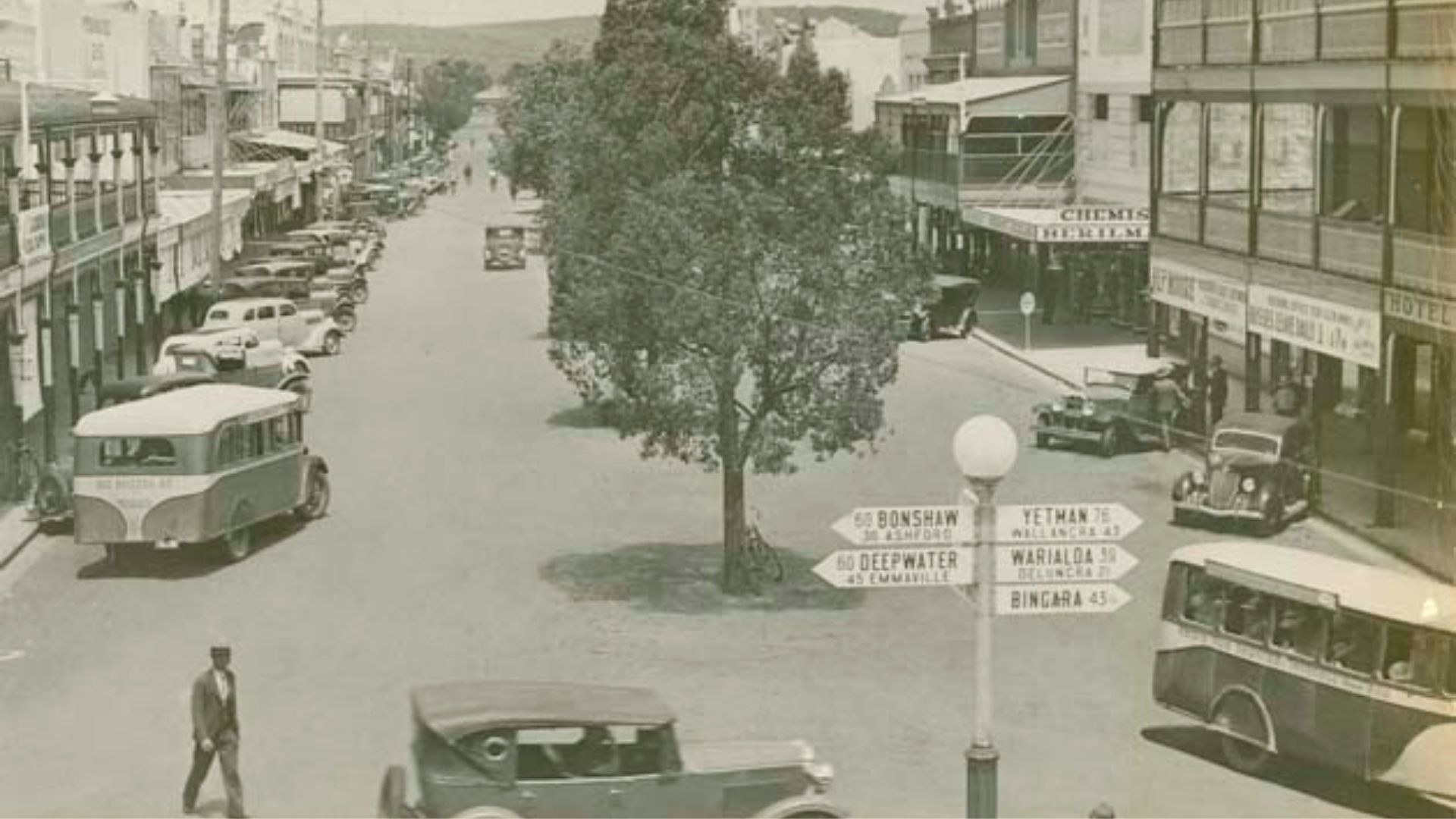By Mary Sinanidis
Nestled by the McIntyre River in inland New South Wales, Inverell may seem an unlikely place to find a connection to modern Greece. It was the last thing I expected to find when in June 2017, I swapped the bustling energy of cash-strapped Athens for the tranquil charm of Inverell.
Plane trees lined the streets, a familiar sight from village squares in Greece. It felt like a good omen, especially considering the names adorning the two main roads: Otho and Byron. The names were a calming curiosity as they were linked to the Greek War of Independence – an unexpected resonance in this remote rural town.
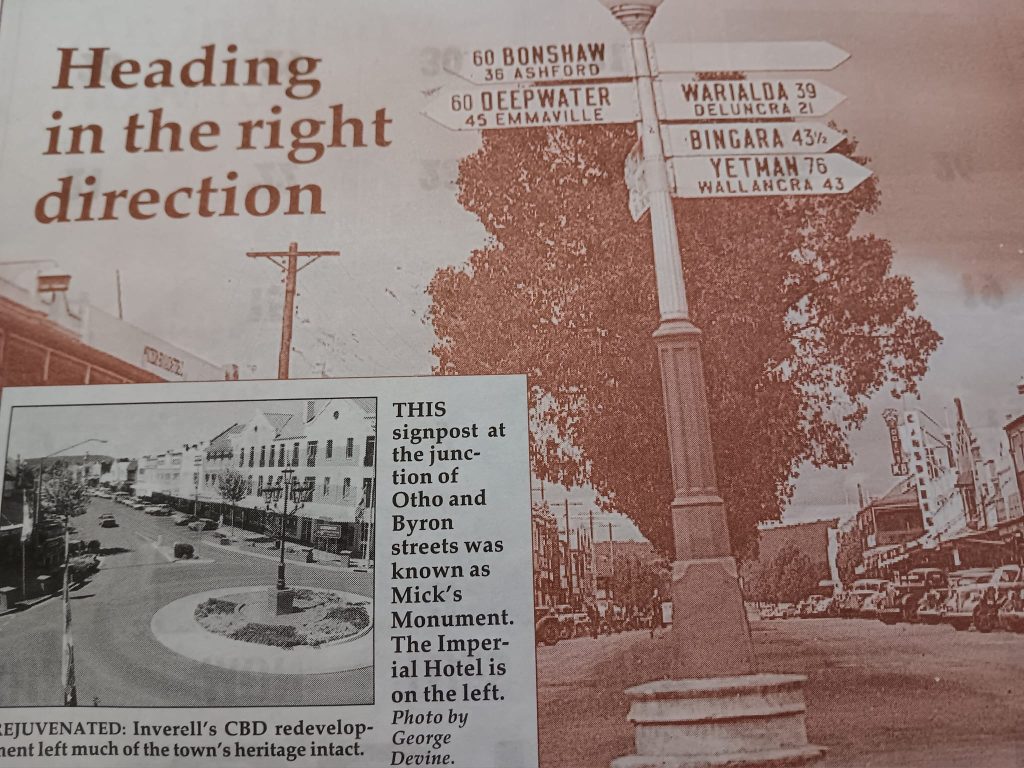
As I admired the lovely plane trees flanking the street, my mind wandered to the iconic plane tree at the Holy Monastery of Agia Lavra in Greece. It was under this very tree that Metropolitan Germanos of Old Patras raised the Greek flag of revolution on March 25, 1821. His rallying cry, “Freedom or death!”, echoed the sentiment that had led me to take a leap of faith that brought me to this town.
Fast forward to March 25, 2018, my first Greek Independence Day in the Antipodes. Disappointment washed over me. There was no student parade, no celebratory feast by the sea. Even the plane trees, deemed “inappropriately planted” by the council, were being pulled down.
Unearthing the past: From Bavarian kings to convict origins
Over coffee at the Union, Inverell Shire Mayor Paul Harmon advised me to ignore the naysayers fighting to save the trees. They were damaging footpaths and posing a tripping hazard. In fact, plane trees weren’t even present in the region when botanist Allan Cunningham first explored the area in 1827.
The town itself came into existence around 1835, when squatters first settled the district. Alexander Campbell, a Gaelic speaker, named his 50,000-acre property “Inverell,” meaning “meeting place of swans.” This coincided with a period of great upheaval in Greece as King Otho of Bavaria came of age that same year. His reign was threatened by his Catholic religion, viewed with suspicion by the Greek Orthodox populace, and his childless marriage with Queen Amalia, threatening to bring the dynasty to an end.
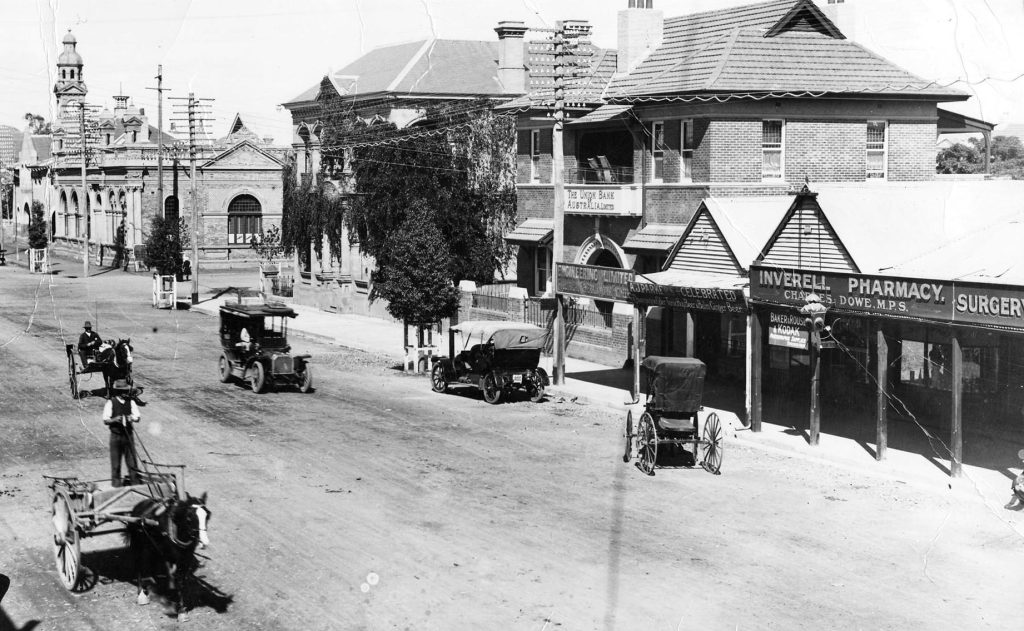
Kathy McLeod of the Inverell District Family History Group says Otho Street was likely named after the new king of Greece around this time.
“The most likely scenario is that it aligns with the Crimean War (1853-1856),” she tells The Greek Herald. “King Otto was appointed by Britain and France as a puppet king in 1832. He was an ally of Britain during the war and considering the other Crimean War-influenced street names like Raglan and Balaclava, it makes sense.”
McLeod disputes information found in the booklet titled “A heritage walk in Inverell,” claiming the street was named after Prussian chef Otto Pohl.
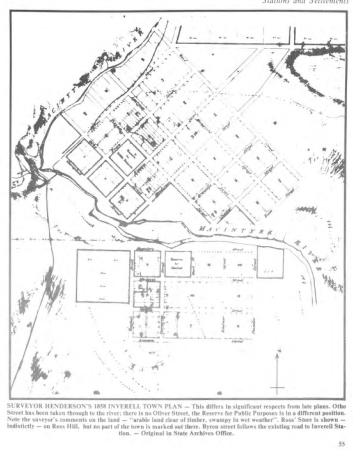

“The dates just don’t add up,” she says, while also pointing to the number of shepherds of German descent in the area making it likely that pro-German sentiment was high.
Edna Roberts (nee Lute), 96, is the great granddaughter of Otto Pohl, and says that she heard the story growing up but doubts it to be true.
“It’s an old family legend,” she says. “The story goes that a group of Councillors were arguing about what the street should be called as Otto rode past on his horse, and he yelled, ‘Call it Otto,’ and apparently, they listened,” Edna says.
Though she never met her great grandfather, she knew from her grandmother that he was a violent man. Anna Rosalie Pohl, Edna’s grandmother, was the only surviving child from eight miscarriages – the final one leading to her mother’s death.
“After my great grandmother died, Pohl went off his head. So much so that she told me he threw a digging fork at her when she was 13. Finally, my grandfather came along and felt so sorry for her that they eloped to Glen Innes,” Edna says. “Otto ended his own life, committing suicide in 1890.”

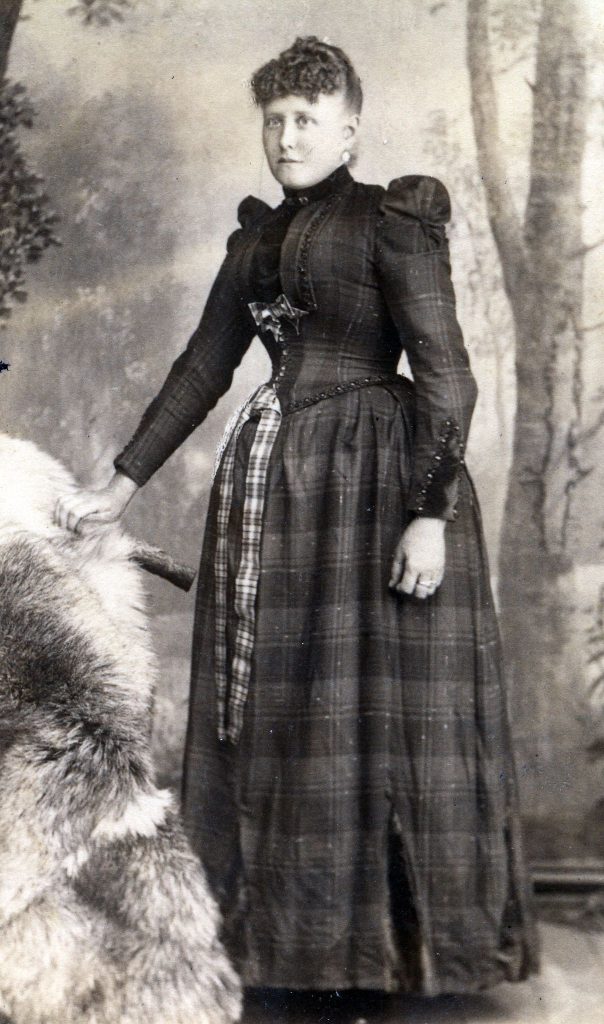
By 1919, tensions surrounding the name arose due to its German origins. The Inverell Times (Friday 29 August 1919) reported heated debate at a council meeting: “The much-discussed origin of the word ‘Otho’, the name given to the principal street in Inverell was again referred to at the Council meeting on Tuesday night.”
The article follows with suggestions ranging from Scandinavian to Italian roots for the name. A motion was carried to ask for a Professor of Languages from Sydney University to give an opinion of the subject.
The lack of formal naming procedures in Inverell’s early years means there’s no written record to definitively settle the debate.
“The information has either been passed down by word of mouth or made obvious when researching the Council’s minutes,” Kathy says.
A legacy beyond names
Beryl Hamilton, who spent 40 years researching Inverell’s history, discovered that surveyor Henderson laid the first town plan in 1858, with Otho and Byron Streets already marked. It’s believed these streets were named after the first Europeans in the area – convict Peter Byron and settler Alexander Campbell.
There’s some debate about Byron Street’s origins.
Elizabeth Weidemann’s book, “World of its own,” states that Byron Plains were named after convict Peter Byron. Weidemann writes Peter arrived aboard the convict ship Speke in 1826, aged 25. Uneducated, he had a ruddy complexion and was tattooed with Adam and Eve, a tree and angels on his right arm and a crucifix on his left. Initially assigned to George Blaxland, he was given a ticket of leave and was employed by McIntyre.
The same book points to William Gardner, a tutor on various new England stations in the 1840s and 1850s who wrote accurate accounts of Alexander Campbell’s in the area. It states: “Although William Gardner stated that Byron Plains were named after the poet Lord Byron, the unwavering local tradition has been that they were named after convict Peter Byron, who spent the rest of his life, from 1841, living in the district.”
Philhellene and amateur historian Peter McCarthy cites Gardner’s accounts over “unsubstantiated rumours” later promoted in the public media.
“Peter Byron was called Peter Brom, a convict who was transported to NSW and served a 12-month jail term with hard labour and horse stealing in 1840,” McCarthy tells The Greek Herald.
Greek influences before the arrival of Greeks
McCarthy argues that Inverell, despite its remoteness, wasn’t isolated from British sentiment. He points to General Theodoros Kolokotronis, a hero of the Greek Revolution who served in the British Army during the Napoleonic Wars where he was influenced by revolutionary ideals. This experience proved valuable when he fled to Zakynthos, then occupied by the British, and gained military training under Philhellene Richard Church.
“While there weren’t any Greeks in Inverell until 1899,” McCarthy says, “their influence was undeniable across Europe, and Britain, a strong supporter of the Greek War of Independence, played a role.”
He highlights the presence of other Greek place names around Australia thanks to this sentiment.
The first Greek to arrive in Inverell, Panagiotis Phacheas (anglicised to Peter), was the grandfather’s brother of McCarthy’s wife. Interestingly, many early Greek immigrants anglicised their names for easier business dealings, hence the Phacheas shop was S. Peter and Co.
“The S stood for Spyridon and the Peter was for Panagiotis,” McCarthy says.
McCarthy and his wife, Deanna (Sophia Psaros), later took over the sandwich shop.
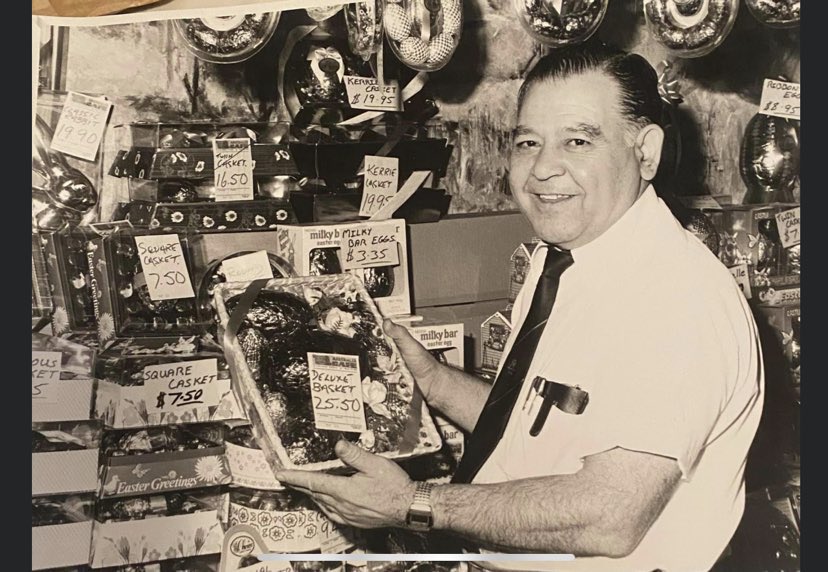
“It felt like they were watching over us,” he says.
Over time, more Greeks arrived in Inverell. Families like the Koupas clan, who grew up above the iconic Australia Cafe, became part of the town’s social fabric. George Koupas from Paphos initially dreamt of becoming a journalist for The Greek Herald but ended up working at a milk factory. In Inverell, he opened a family-friendly cafe with his business partner, Kerry Demosthenos. Neither of his children, Chryse nor Paul, remember him commenting on the Greek links of the town’s street names but they both remember the robust Greek community.
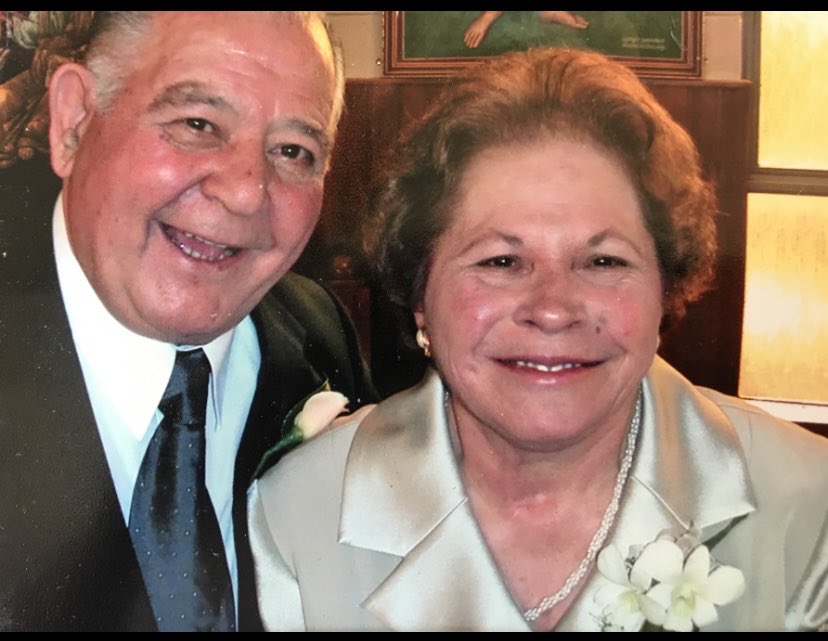
“Dad met Sophie (my mum) in Sydney in 1959 on a visit to Sydney. He had dropped in as a favour for his business partner Kerry who had married Thea Eleni (mums’ sister), to pick up a few things for her. That’s how he was introduced to my mother. In two months, they were engaged (it was April) and then married mid-August the same year,” Paul said of his father.
Chryse remembers life above the café and the good times they shared.
Peter Gianneas remembers Inverell’s Greek heyday. He jokes he is the “last Greek” standing after coming to Inverell as a mechanic when Copeton Dam was being built. It was during this time that he met the love of his life, Judy.
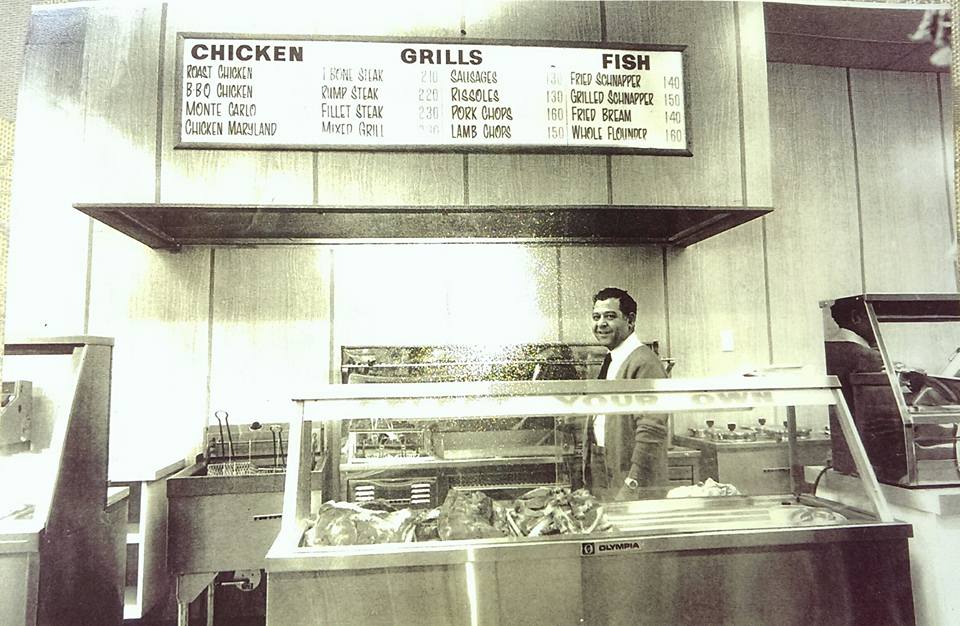
His goal was to move the family to Greece, but a trip back home convinced Peter he was ‘home’ in Inverell. His gyros shop was a taste of his homeland to the community, proving you can bring a taste of Greece to a place no matter where you are.
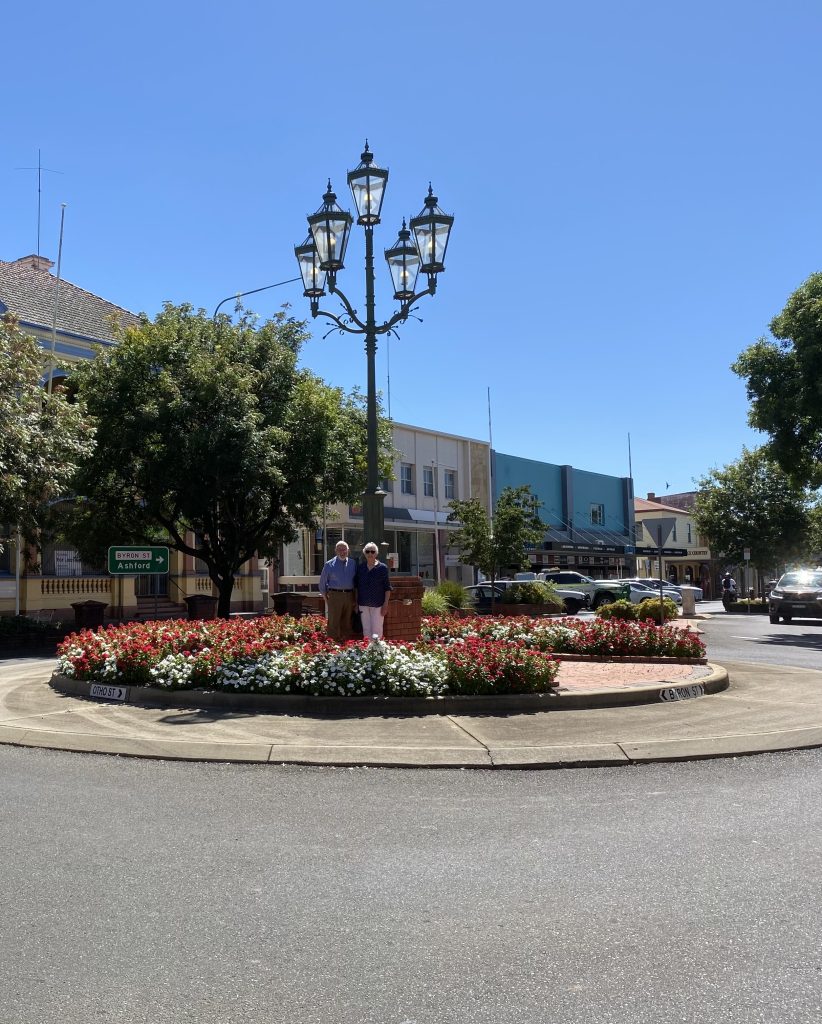
“We went to Marrickville to see how it was done and then offered the same taste to locals,” Judy recalls, saying people still ask for Gyros even now, 14 years since the shop has shut.
Judy and her children speak Greek and she shared stories of their numerous visit to the country, but despite the love for Greece they never noticed the link of the town’s street names to Modern Greek History.
“I guess we were too busy working,” Judy says.

